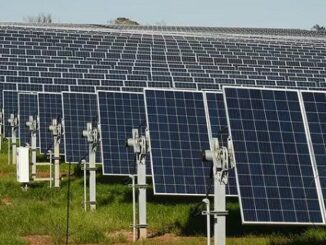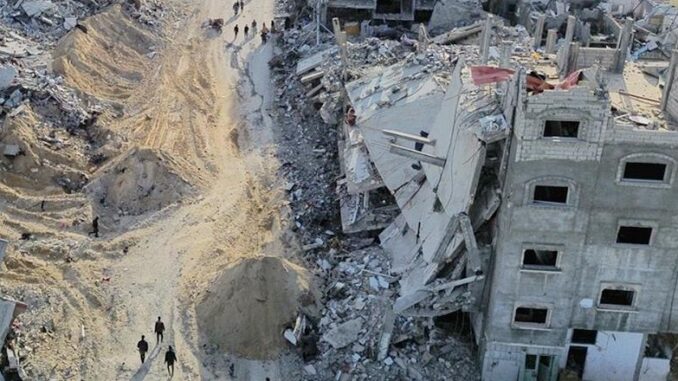
BRUSSELS, Belgium, September 18, 2025 (ENS) – The European Commission has presented its proposal to the European Council to suspend billions of euros under the trade-related provisions of the Association Agreement between the EU and Israel, as European Commission President Ursula von der Leyen previewed in her State of the Union address on September 10. The Commission also proposed stern sanctions on Hamas, extremist Israeli government ministers, and violent settlers.
A body composed of the heads of state or government of EU countries, the European Council sets the general political direction and priorities of the EU. This Council does not legislate. A separate EU institution, the Council of the European Union, is the body that receives legislative proposals from the Commission.
The Commission is also putting on hold its bilateral financial support to Israel, with the exception of support to civil society and Yad Vashem, Israel’s official memorial honoring the victims of the Holocaust.
This affects future yearly allocations between 2025 and 2027, as well as ongoing institutional cooperation projects with Israel and projects funded under the Regional EU-Israel cooperation facility.
European Commission President, Ursula von der Leyen, said, “The horrific events taking place in Gaza on a daily basis must stop. There needs to be an immediate ceasefire, unrestrained access for all humanitarian aid, and the release of all hostages held by Hamas.”
Following the recent decision by Israel to introduce a blockade to the access of humanitarian aid to Gaza, the humanitarian situation has deteriorated to an unprecedented and unsustainable level, driven by ongoing bombardments, military operations, mass displacement, and the collapse of basic services, the Commission said in a statement.
The Euro-Mediterranean Agreement establishes an association between the European Communities and their Member States, of the one part, and the State of Israel, of the other part.
The EU High Representative presented to the Foreign Affairs Council on June 23 a review which concluded that there are indications that Israel would be in breach of Article 2 of the the Euro-Mediterranean Agreement, which establishes “respect for human rights and democratic principles as an essential element of that Agreement.”
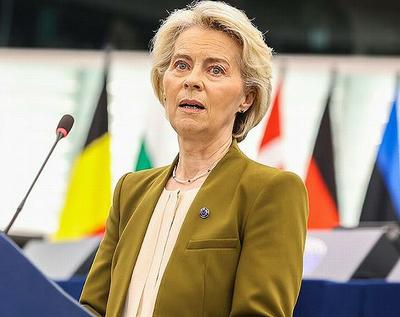
Violation of Article 2 amounts to a serious material breach of that Agreement. The European Union has the right to respond to such a breach in a way that is proportionate and in view of promoting the end of the violations.
Given the special urgency of the situation, the EU can act without first taking recourse to the Association Council established under the Agreement.
“The European Union remains the biggest donor of humanitarian aid and an unwavering champion of the two-state solution. Reflecting these principled commitments, and taking into account serious recent developments in the West Bank, we propose to suspend trade concessions with Israel, sanction extremist ministers and violent settlers, and put bilateral support to Israel on hold, without affecting our work with Israeli civil society or Yad Vashem,” von der Leyen said.
EU-Israel Trade
The EU is Israel’s biggest trading partner, accounting for 32 percent of Israel’s total trade in goods with the world in 2024. Israel is the EU’s 31st largest trading partner.
Total trade in goods between the EU and Israel in 2024: €42.6 billion.
EU imports from Israel were worth €15.9 billion, and the EU’s exports to Israel amounted to €26.7 billion. Both were led by machinery and transport equipment and chemicals.
The suspension concerns the core trade-related provisions of the Agreement, and in practice means that imports from Israel will lose their preferential access to the EU market. These goods will therefore be charged duties at the level applied to any other third country with whom the EU has no free trade agreement.
Europe Says Israel Has Failed to Comply
The European Commission’s proposals follow a review of Israel’s compliance with Article 2 of the Association Agreement. The review found that actions taken by the Israeli government breached “essential elements relating to respect for human rights and democratic principles.” This entitles the EU to suspend the Agreement unilaterally.
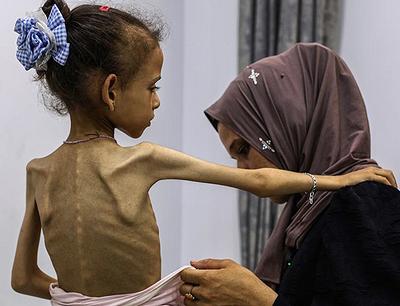
This breach refers to the rapidly deteriorating humanitarian situation in Gaza following the military intervention of Israel, the blockade of humanitarian aid, the intensifying of military operations and the decision of the Israeli authorities to advance the settlement plan in the so-called E1 area of the West Bank, which further undermines the two-state solution.
In its conclusions of June 27, 2024, the European Council reiterated its strongest condemnation of the brutal terrorist attacks conducted by Hamas and other terrorist groups against Israel on October 7, 2023. The European Council strongly condemned the ongoing extremist settler violence in the West Bank, including East Jerusalem and invited the Council to take work forward on further restrictive measures against extremist settlers.
The European Council also called for safe access to the holy sites and for the Status Quo to be upheld. Lastly, the European Council condemned the Israeli government’s decisions to further expand illegal settlements across the occupied West Bank and urged Israel to reverse these decisions.
Gaza Residents Suffer Environmental Destruction
In a 2024 report of its own, the United Nations detailed the environmental destruction that has enveloped Gaza since Hamas attacked Israel on October 7, 2023, killing approximately 1,200 people and taking 250 people hostage, according to Israeli government figures.
In the report entitled, “Environmental impact of the conflict in Gaza,” the UN Environment Programme announced that three entities – the UN, the World Bank and the European Union – are planning to undertake a rapid damage and needs assessment in Gaza and a field inspection when circumstances permit. Until then, UNEP offered a “preliminary assessment of environmental impacts.”
Quoted in the report, UN Secretary-General Antonio Guterres called what is happening in Gaza an “entirely manmade disaster.” The UN system and its partners are focused on saving civilian lives and averting famine in Gaza, in what has become – in the Secretary-General’s words – a “humanitarian hellscape.”
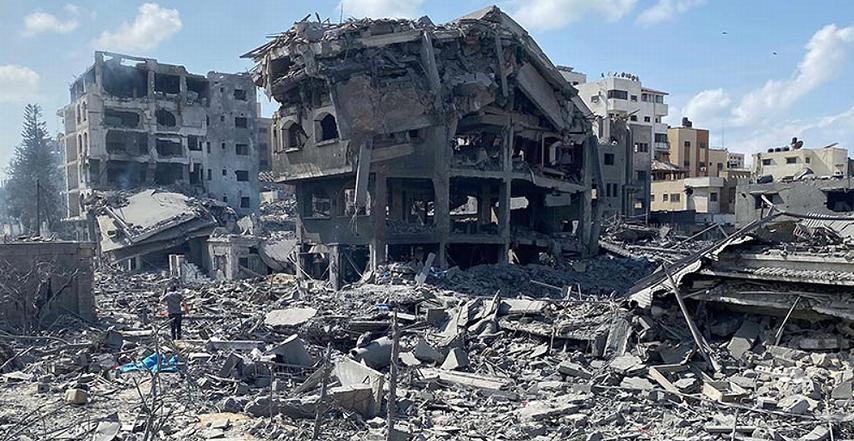
“The escalation of conflict since 7 October 2023 has clearly had a profound impact on people and the environment in Gaza. Intensive bombardment by Israel has led to unprecedented intensity of destruction in terms of infrastructure, productive assets and service delivery,” the UNEP report states.
“Sewage, wastewater and solid waste management systems and facilities have collapsed. The destruction of buildings, roads and other infrastructure has generated over 39 million tons of debris, some of which is contaminated with unexploded ordnance, asbestos and other hazardous substances. Human remains are buried in this vast quantity of building debris,” UNEP reported.
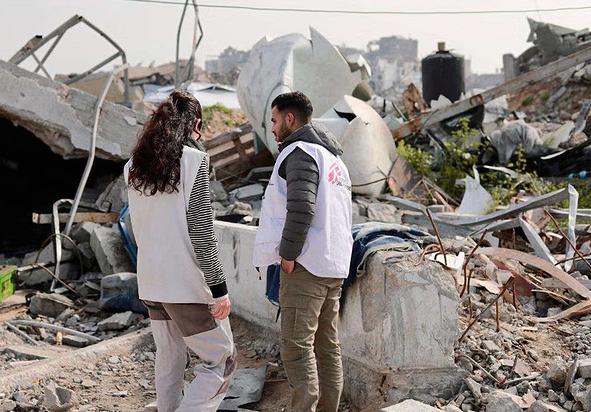
“Another set of urgent but less immediately visible environmental challenges include the contamination of land, water resources and the air by munitions and unexploded ordnance; possible instability of land arising from the prior construction of an extensive system of tunnels; and contamination of soil and water resources arising from the recent destruction and flooding of such tunnels,” UNEP stated.
The UNEP report concluded that only when a ceasefire is accomplished, can restoration begin in Gaza.
“Halting the destruction will allow the hard, work of restoring services such as wastewater treatment and solid waste collection to begin. Restoration of such services will be costly: damage already
sustained in the water, sanitation and hygiene sector alone is assessed at over US$500 million, the World Bank, the European Union and the UN concluded jointly in 2024.
“Restoring safe living conditions for a densely-populated, water-scarce and contaminated strip of land will also require exceptionally careful planning. Incorporating environmental dimensions into such planning will be necessary from the very start. Planning to rebuild hospitals, schools and homes should incorporate analysis of potential contaminants, so that high-risk areas can be avoided; and be sensitive to possible land instability arising from destroyed tunnels,” the UNEP report advises.
“Clearance of debris also requires an understanding of the contaminants such debris contains, to ensure the clearance and disposal does not spread and further contaminate soil or water, and thus create new risks to Gaza’s inhabitants. Understanding the extent and type of pollution affecting the Coastal Aquifer will also be critically important, to ensure that people are not further exposed to dangerous chemicals and heavy metals in their water or food,” the report states.
Next Steps: Suspension of Some EU-Israeli Trade
The Commission is proposing a European Council decision on the suspension of certain trade-related provisions of the Agreement that fall within the Union’s common commercial policy.
The Council needs to adopt the decision with a qualified majority. The decision will enter into force on the date of its adoption.
Once the decision is adopted, the EU-Israel Association Council will be notified about the suspension. The suspension will take effect 30 days after the notification to the Association Council.
The Commission is also proposing to sanction Hamas, extremist Israeli Government ministers, and violent settlers. The package consists of five draft legal acts with nine listing proposals against the ministers and the settlers under the EU Global Human Rights Sanctions Regime, as well as a reinforced package of listings against 10 members of the Hamas politburo, based on a new listing criterion under the Hamas Sanctions Regime.
EU’s Financial Support to Israel Suspended
“We are putting on hold all bilateral financial support to the Israeli government. We continue to advocate for a Two-State solution – one based on a secure Israel and a viable Palestinian Authority,” Kaja Kallas, High Representative for Foreign Affairs and Security Policy and Vice-President of the European Commission, and Dubravka Šuica, Commissioner for the Mediterranean, said in a joint statement.
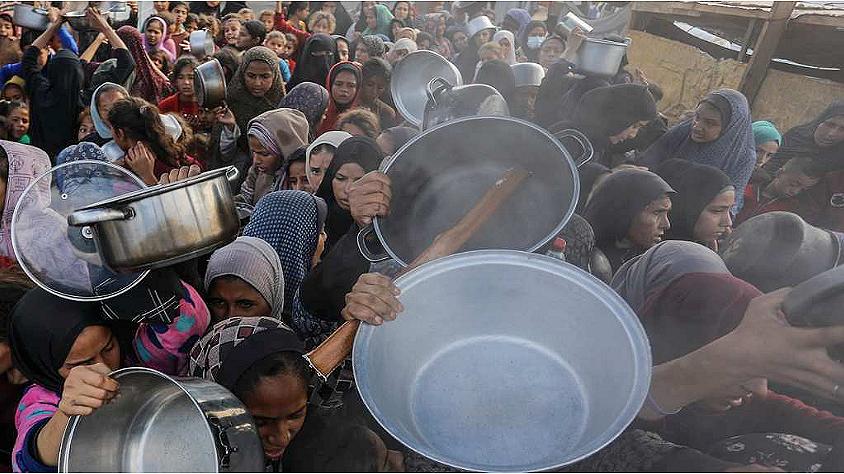
“To help make this possible, we are supporting the Palestinian reform process with substantial funding, amounting to €1.6 billion (US$1.878 billion) over the next two years. Yet our funding alone is not sufficient. The upcoming Palestine Donor Group will serve as a platform to catalyse efforts of regional and international partners. We invite others to join us and pledge their support,” Commissioners Kallas and Šuica said.
The EU’s financial support to Israel is covered by the Neighbourhood, Development and International Cooperation Instrument Global Europe for the period 2021 to 2027. In this context, Israel was set to receive an average of €6 million (US$7 million) per year between 2025 and 2027. The Commission is proposing to suspend this support.
In addition, the EU will equally put on hold the institutional cooperation projects, including twinning programs and projects under the Regional EU-Israel cooperation facility benefitting Israel in the region in the context of the Abraham Accords. The amount to be put on hold is approximately €14 million (US$16.4 million).
Under the EU Global Human Rights Sanctions Regime, the Council has listed so far nine individuals and five entities linked to violent extremism in the West Bank and East Jerusalem, as well as the blocking of humanitarian aid into Gaza.
On December 7, 2020, the European Council established a Global Human Rights Sanctions Regime, which applies to acts such as genocide, crimes against humanity and other serious human rights violations or abuses, such as torture, slavery, extrajudicial killings, arbitrary arrests or detentions.
The EU Global Human Rights Sanctions Regime underscores the EU’s determination to enhance its role in addressing serious human rights violations and abuses worldwide. Achieving the effective enjoyment of human rights by everyone is a strategic goal of the European Union. Respect for human dignity, freedom, democracy, equality, the rule of law and human rights is a fundamental value of the EU and of its common foreign and security policy.
“We all agree that the situation in Gaza continues to head in the wrong direction. We must leverage the tools at our disposal to pressure the Israeli government into changing course,” Commissioner Kallas said. “Among the options on the table, suspending trade concessions and imposing sanctions on extremist ministers, violent settlers, and Hamas operatives would send a strong message from the European Union: this war must end, the suffering must stop, and the hostages must be released. The next crucial step is securing support from our Member States to implement this proposal.”
U.S. Vetoes Gaza Ceasefire
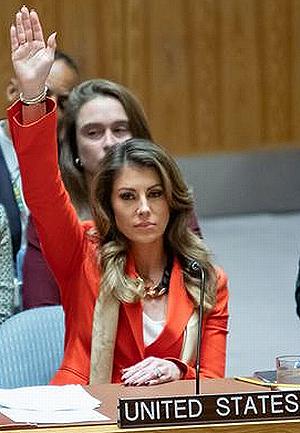
At the UN Security Council meeting today, the United States for the sixth time again vetoed a UN resolution demanding an immediate, unconditional and permanent ceasefire in the Gaza Strip, following a vote in the Security Council on Thursday.
The United States is one of five permanent Security Council member countries that possess the right to veto.
The draft resolution also demanded the release of all hostages held by Hamas and for Israel to lift all restrictions on the entry of humanitarian aid and ensure that it is safely distributed to the population – in particular by UN agencies and partners.
The draft was put forward by the Council’s 10 non-permanent members: Algeria, Denmark, Greece, Guyana, Pakistan, Panama, Republic of Korea, Sierra Leone, Slovenia and Somalia.
“Even though this resolution was not adopted today at this 10,000th meeting of the Council, 14 members of this Council have sent a clear message,” said Danish Ambassador Christina Markus Lassen.
“We want to see an immediate and lasting ceasefire, the immediate and unconditional release of all hostages, and the urgent lifting of all restrictions on humanitarian aid,” Lassen said. “We will continue to work for this for however many Council meetings it may take.”
Featured image: View of destruction in Rafah, southern Gaza Strip, January 2025. (Photo by Ashraf Amra courtesy United Nations Relief and Works Agency for Palestine Refugees)
© 2025, Environment News Service. All rights reserved. Content may be quoted only with proper attribution and a direct link to the original article. Full reproduction is prohibited.

